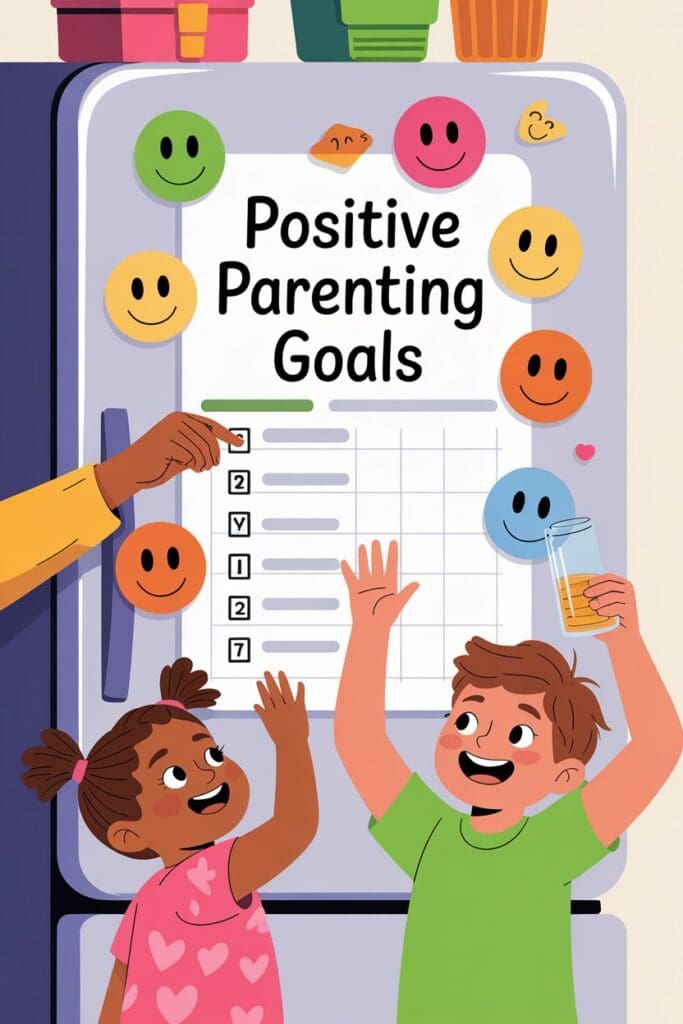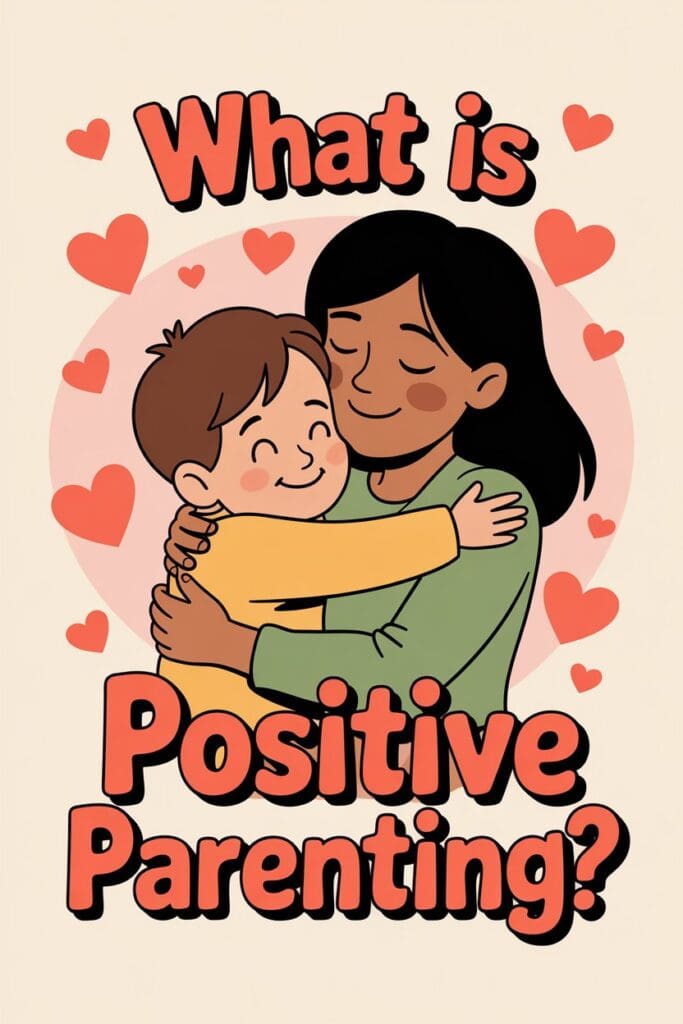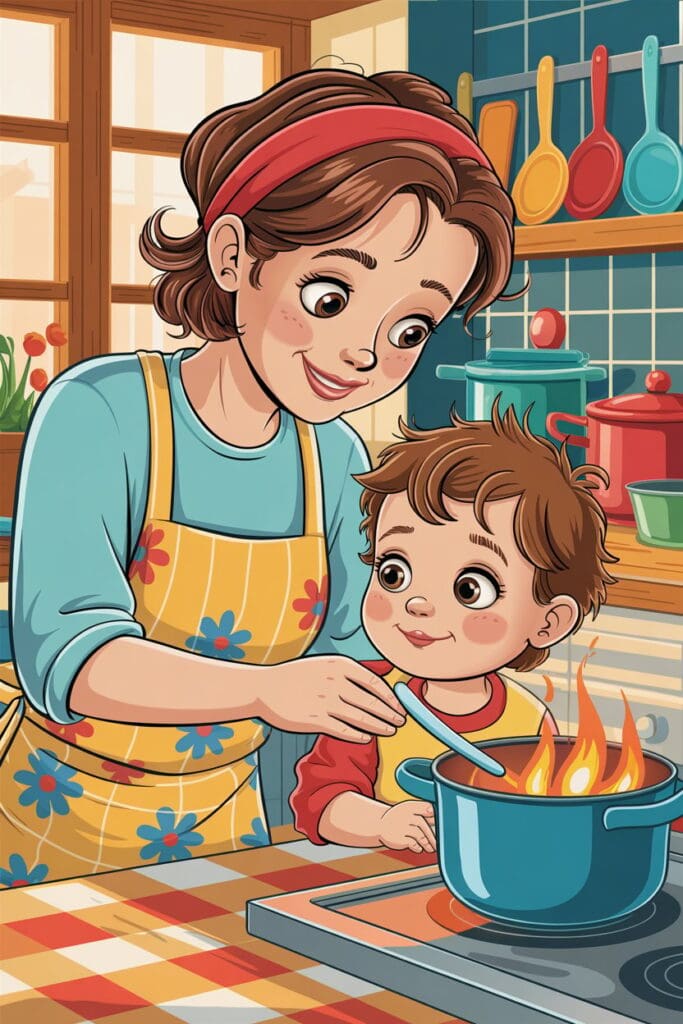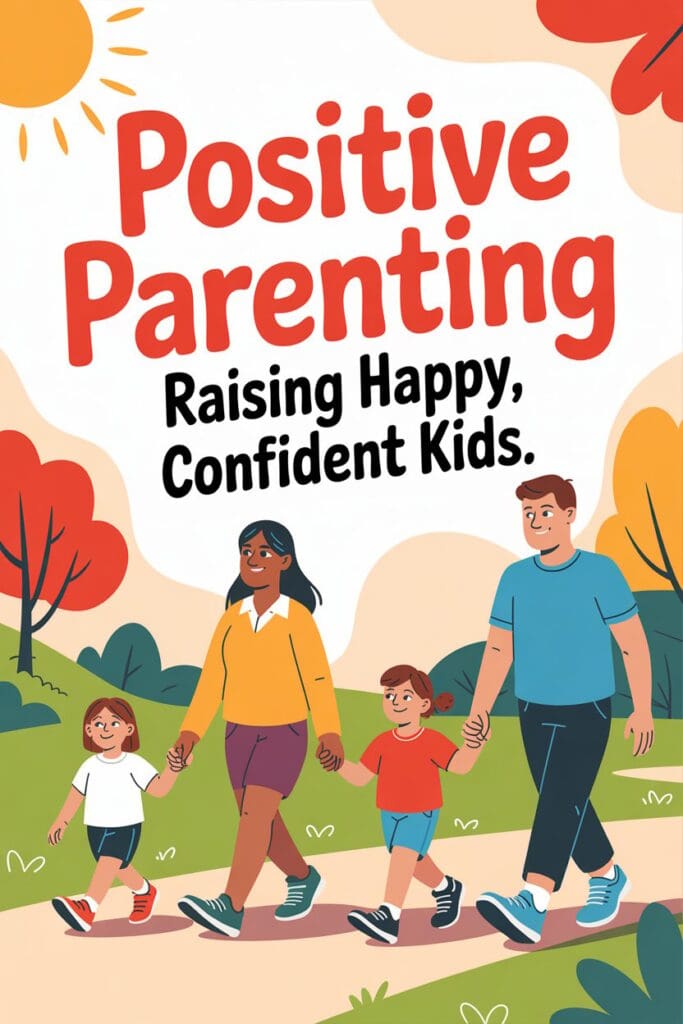What Is Positive Parenting? 5 Key Principles Every Parent Should Know
Positive parenting is a nurturing approach to raising children that emphasizes respect, communication, and connection.
Rather than relying on punishments, bribes, or yelling, positive parenting teaches kids life skills through guidance and empathy.
In this guide, you’ll learn what positive parenting is, why it works, and simple ways you can start practicing it today.
Heads up: This post may include affiliate links. As an Amazon Associate, I earn from qualifying purchases—at no extra cost to you. Full privacy policy and disclosure here.

The 5 Core Principles of What Is Positive Parenting
At its core, positive parenting is all about creating strong, healthy relationships between parents and children. It focuses on setting clear expectations, offering encouragement, and teaching children how to behave — rather than simply punishing them when they don’t.
Unlike traditional discipline methods, positive parenting encourages emotional intelligence, resilience, and independence. Parents act as guides, helping their children learn right from wrong through love, understanding, and consistency.
If you want a deeper dive into practical strategies, check out my guide on quick positive parenting tips for better behavior from kids.
The 5 Core Principles of What Is Positive Parenting
You don’t have to be perfect to use positive parenting — just intentional. Here are the five key pillars:
1. Connection Before Correction
Children need to feel seen and heard before they’re willing to cooperate. Building a strong emotional connection makes guidance easier and more effective.
2. Encouragement Over Praise
Instead of simply praising outcomes (“Good job!”), focus on encouraging effort and persistence (“I love how hard you worked!”).
3. Setting Clear and Loving Boundaries
Boundaries are essential for children to feel safe. Positive parenting teaches parents how to set limits firmly but kindly — a skill I dive deeper into in the 5 pillars of positive parenting.
4. Managing Emotions with Empathy
It’s normal for kids to feel big emotions! Positive parents respond with empathy, helping children name, understand, and process their feelings.
5. Leading by Example
Children learn by watching you. Modeling calm behavior, respectful communication, and problem-solving sets the tone for the whole family.

enefits of Understanding What Is Positive Parenting
Why choose positive parenting? Research shows it can lead to:
- Higher self-esteem
- Better emotional regulation
- Stronger parent-child relationships
- Improved problem-solving skills
- Reduced behavior problems
When you use techniques like redirection in positive parenting, you’re not just avoiding conflict — you’re teaching valuable life skills.
If you’ve ever wondered what is positive parenting and how it differs from traditional discipline, you’re in the right place.
Common Myths About Positive Parenting
There are a few misconceptions floating around about positive parenting. Let’s bust them:
Myth: Positive parenting is too permissive.
Truth: Positive parenting involves clear rules and firm limits — just delivered with kindness.
Myth: It’s only for young kids.
Truth: Teens and even adult children can benefit from a relationship built on connection and trust.
Myth: It takes too much time.
Truth: Positive parenting often saves time in the long run by reducing power struggles and tantrums.
What is positive parenting really about? It’s about guiding kids with empathy, boundaries, and trust.
How to Practice Positive Parenting Every Day
Ready to get started? Here’s a simple daily action plan:
- Connect First: Spend at least 10 minutes of special one-on-one time with each child.
- Stay Calm: Take a deep breath before responding to misbehavior.
- Redirect: Offer acceptable choices instead of saying “no” all the time. (Learn more about real-life conditioning examples in parenting.)
- Praise Effort: Focus on what your child does well, even in small steps.
- Model Respect: Treat your child the way you want them to treat others.
If you’re ready to dive deeper, I highly recommend this online course from Positive Parenting Solutions. It completely transformed my parenting approach!
Understanding what is positive parenting can transform your relationship with your child for the better.
Helpful Positive Parenting Books
Want even more help? These books are packed with insights:
- Positive Discipline by Jane Nelsen
- The Whole-Brain Child by Daniel J. Siegel
- How to Talk So Kids Will Listen & Listen So Kids Will Talk by Adele Faber
For even more great picks, don’t miss my full list of must-have positive parenting books!

FAQ About Positive Parenting
What is the main goal of positive parenting?
The main goal is to raise children who are emotionally healthy, confident, and capable of making good choices independently.
Is positive parenting just letting kids do whatever they want?
No! Positive parenting is not permissive. It’s about setting clear limits with love and respect.
How can I start practicing positive parenting?
Start small: connect before you correct, set loving boundaries, and model calmness during tough moments.
Does positive parenting work for toddlers?
Yes — in fact, toddlers respond especially well when you pair clear expectations with lots of empathy.
Why is understanding attachment theory important in positive parenting?
Attachment theory helps explain why a secure emotional bond is critical for a child’s development. Learn more about it here.
What is positive parenting and why is it important?
Positive parenting is an approach that emphasizes strong emotional connections, clear boundaries, and respectful guidance.
What is positive parenting and why is it important?
Positive parenting is an approach that emphasizes strong emotional connections, clear boundaries, and respectful guidance.
Final Thoughts on Building a Positive Family Culture
Positive parenting isn’t about being perfect — it’s about being present, connected, and intentional. Every small moment of empathy, every respectful limit, and every effort to stay calm plants seeds for your child’s future success.
Ultimately, learning what positive parenting is gives you the tools to raise confident, kind-hearted kids without relying on fear or punishment.
💡 Love these simple positive parenting tips? Save this guide for later — Pin it now to your Parenting Tips board!

💬 Have you tried positive parenting in your home?
I’d love to hear your experiences! Share your wins, your struggles, or your favorite tip in the comments below — let’s support each other on this parenting journey. 🌟
